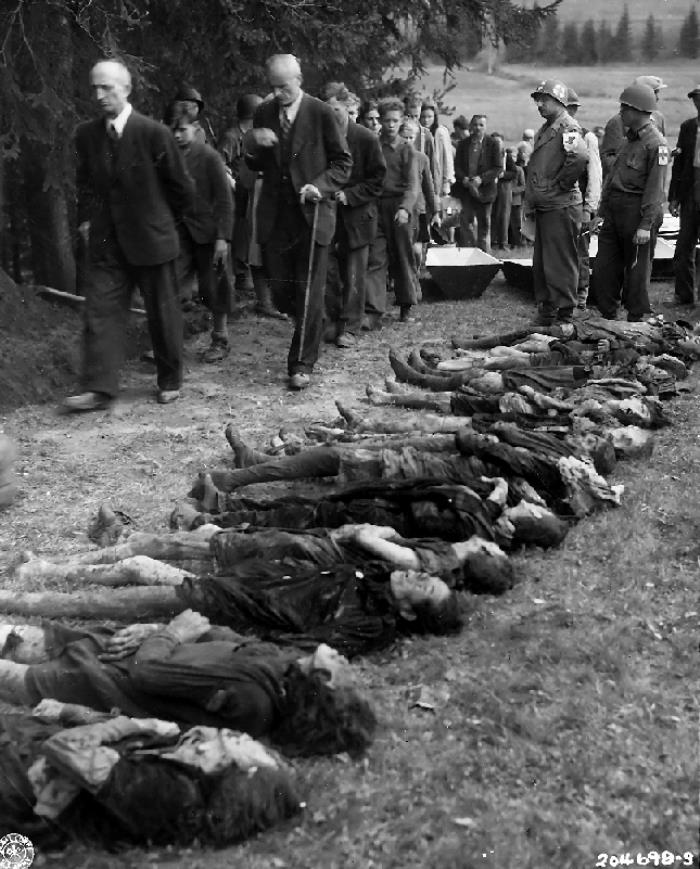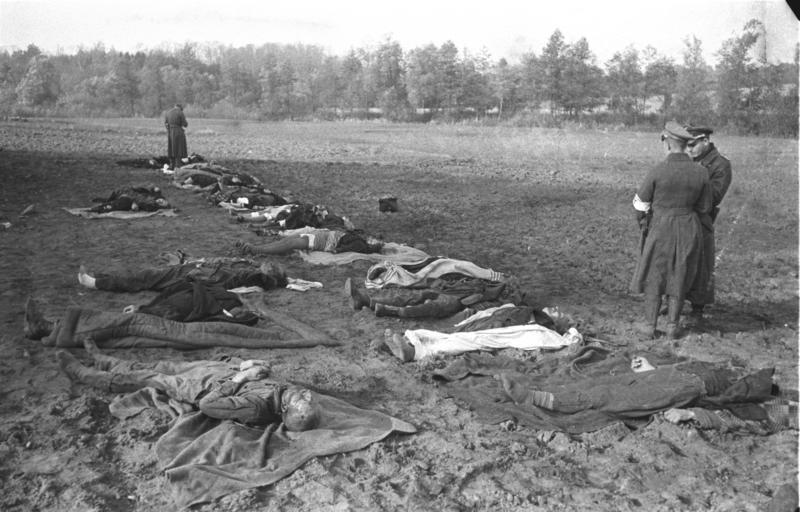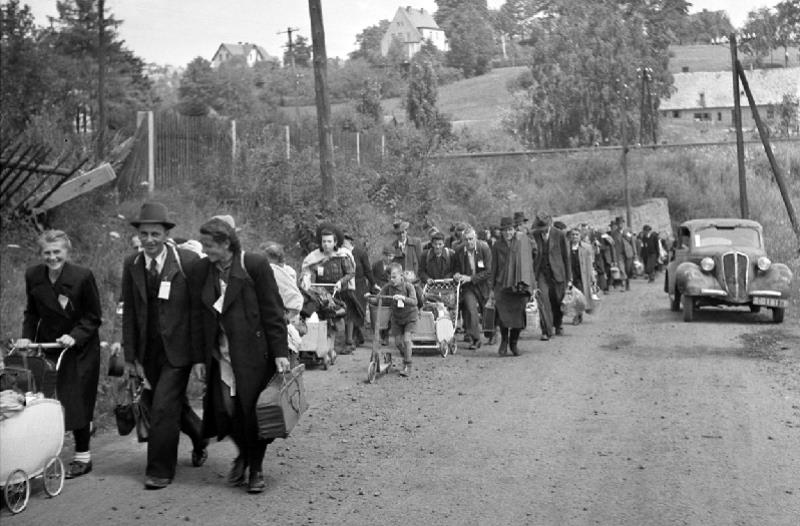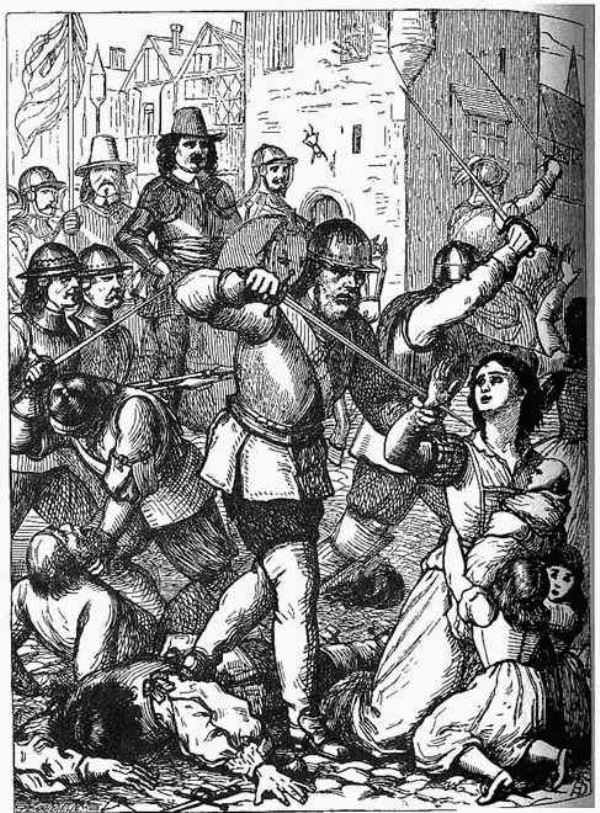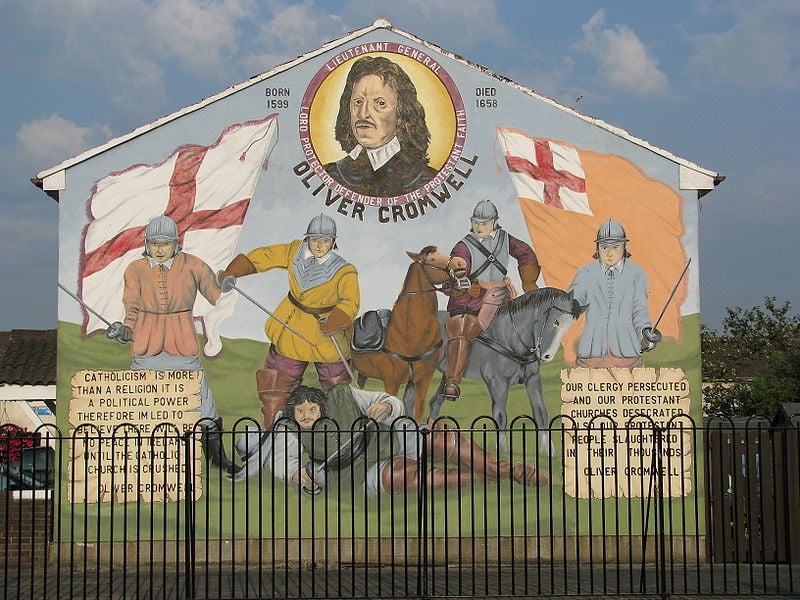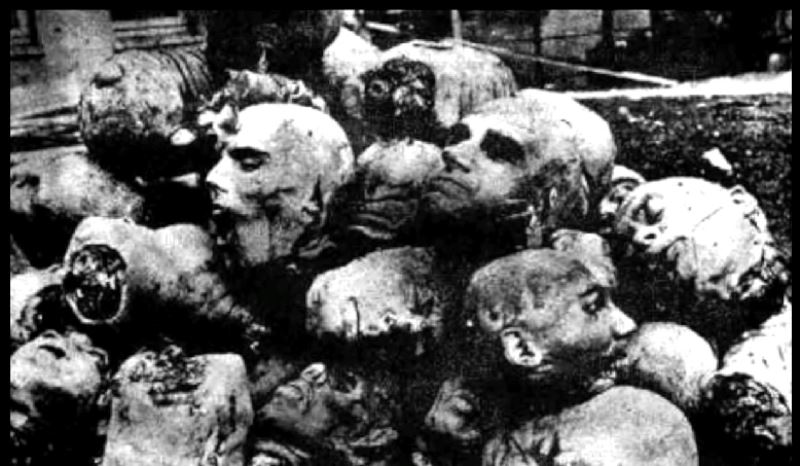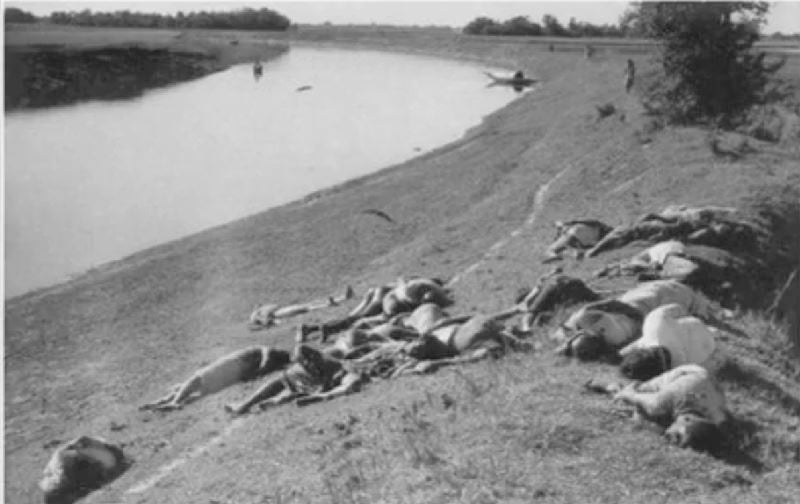2 Million Ethnic Germans Perish After World War 2
As history’s most known genocide, the Holocaust was so disturbing and catastrophic that it’s become synonymous in the Western Hemisphere with mass genocide. Adolf Hitler‘s pathological anti-Semitism wiped out nearly 80% of Europe’s Jews as well as five million of many other oft-targeted minorities, from homosexuals to the disabled to Communists.
He wasn’t too keen on Germany’s eastern neighbors either, and in many respects, the secret genocide of World War II is the wholesale slaughter of 1.5 million Romani, 2 Million Poles, and anywhere between 8 to 21 million Soviets at the hands of the Nazis.
As Allied victory became a question of when and not how, Stalin met with President Truman and Prime Minister Attlee to discuss post-war Europe at the Potsdam Conference. Among other tense exchanges, they agreed to the “orderly transfer” of displaced Germans back to their homeland, a vague and uncommitted phrase that would become the justification behind one of history’s worst instances of misplaced aggression.
At least 12 million ethnic and displaced Germans in Eastern Europe were forced out of their homes and ordered back to Germany. Countries specifically targeted by the Gestapo reacted the harshest, with Poland, Czechoslovakia and Yugoslavia deporting several million Germans each.
Fearing its German population might work with the Nazis during the war, the USSR had already expelled over a million of its own citizens to Siberian and desert internment camps. After the war, the Soviets wouldn’t even let the Germans go back to their Russian homes, and as many as 2 million were forced into slave labor, seen by Stalin as war reparations for the decimation of the Soviet Union.
While it may not be genocide comparable in style and scale to Nazi atrocities, Eastern Europe was guilty of punishing Germans’ collectively without even the slightest sense of irony. Even apathetic Germans were expelled en masse from their countries of residence without much interference from Allied forces.
Just last year, historian Alfred-Maurice de Zayas wrote:
“According to a study at the German Federal Archives of 1974, at least half a million were murdered directly, succumbing to beatings, dying of rape, shooting etc., a million and a half died as a direct consequence of the expulsions, since these were brutal and disorderly and Germany was in a state of total collapse upon their arrival.”
Oliver Cromwell lays waste to Ireland
In what ended up being one of the United Kingdom’s regrettable teenage phases, the two decades between 1640 and 1660 were England’s first modern foray into republicanism. It was a time of great tumult and creativity in England, with a right-wing Parliament of religious zealots surreptitiously conglomerating power yet a suddenly uncensored media stream of everything from the Modern Era’s Odyssey, to the first tract on climate change, to feminism, to an unlucky activist’s continued pleas for radical communism.
The history behind it all starts with Catholic King Charles’ execution by his Protestant Parliament, followed by his heir signing a treaty with the fledgling Irish Catholic Confederation. A sizable chunk of the ever-shrinking Rump Parliament (so-named for its paltry resemblance to its once mighty numbers) was Puritan and brutally contemptuous of Catholics; they sent the New Model Army, commanded by Oliver Cromwell, to make way for Protestant settlements on Ireland.
If there is any one thing you learn from this article, it’s that you should probably just avoid bringing up Oliver Cromwell around any Irishmen. As well as being one of England’s bigger domestic mistakes, Cromwell is widely credited with the ruination of Anglo-Irish relations. Basically from the moment he stepped foot on Irish soil until he left years later, Cromwell was killing Irishmen. In Drogheda, the first town the New Model Army lay siege, he slaughtered almost every soldier and clergyman—nearly 3000 men—for not surrendering soon enough.
From there they moved on to Wexford, where his troops interrupted surrender negotiations to destroy the town so savagely that they couldn’t even use it for a supply port. At every turn, Cromwell handily defeated the Irish defenders. Even Ireland’s most formidable force, the Ulster Army, had a third of its men killed in one battle.
Cromwell slaughtered the ICC so efficiently that his face is used in Northern Ireland to goad Catholics.
Without a comparable army, the ICC resorted to guerrilla tactics as early as 1650. In response, Cromwell enacted a policy of total war, burning food stocks in villages across the island and imprisoning suspected Tory sympathizers. What the ensuing famine failed to kill, the Black Plague preyed on. All told, roughly 40 percent of the island’s population was struck down by Cromwell’s actions, rivaled in Irish history only by the 19th Century Potato Blight.
The Young Turks Cleanse the Ottoman Empire of Christians
The Armenian Genocide at the hands of the Ottoman Empire is the most cited “other Holocaust” in modern history, but it is historically the first event to be called “genocide.” What you might have known is that the targets were their own Christian citizens. What might surprise you is that Turkey still denies it ever happened.
From 1915 to 1923, under the leadership of the Young Turks, the Ottoman Empire took hundreds of thousands of ethnic Greek, Assyrian, and Armenian women and children without warning and separated them from their husbands, fathers, and brothers.
Able-bodied men were worked to death in forced labor camps while their families were made to march through hundreds of miles of Syrian desert without food or water. Turks were free to rob, rape, and kill anyone in the line, leaving a path of bodies between prison camps and lining the banks of the Euphrates.
When they finally reached their destination in the Syrian desert, the exhausted survivors found no preparations for their arrival. Anyone near death was brought to an extermination camp to be mercifully put out of their misery in mass poisonings, if they weren’t drowned, burned, or shot along the way.
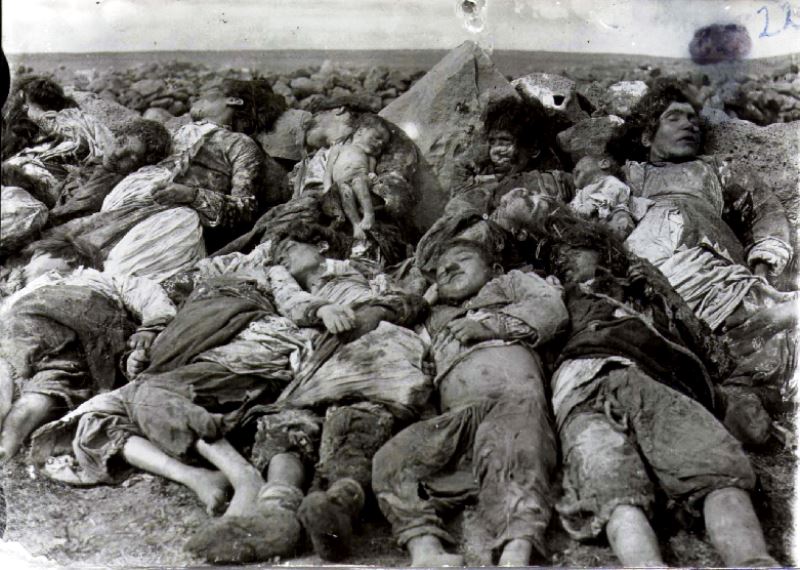
By 1919, Ottoman officials were being charged by international courts for their crimes against humanity, but nothing ultimately came of it. The Armenians got their revenge soon after, as the Armenian Revolutionary Federation’s “Operation Nemesis” hunted down and killed several high-ranking politicians and generals in the Ottoman Empire.
1 Million Perish After Russia Wins The Caucasian War
After nearly a century of war over the Caucasus coast of the Black Sea, Tsar Alexander II (known unironically as “the Liberator”) finally had the native Circassians under his thumb. Originally intending to just expel them from their homeland, Russia had a deal with the Ottoman Empire to take the Muslim refugees off their hands.
Denigrated as the first modern example of genocide, the Circassian Genocide has stirred controversy leading up to the 2014 Sochi Winter Olympics. In one respect, the genocide is a freak catastrophe of negligent and bumbling bureaucracy.
First the Russians expelled the Circassians from their homeland and then the Turks failed to properly accommodate the refugees’ basic needs, sticking them in inhospitable mountain regions with no food or water. When the Circassians tried to go back to Russia, Alexander personally declined many of their petitions, fearing British and Turkish plots to spark a new war.
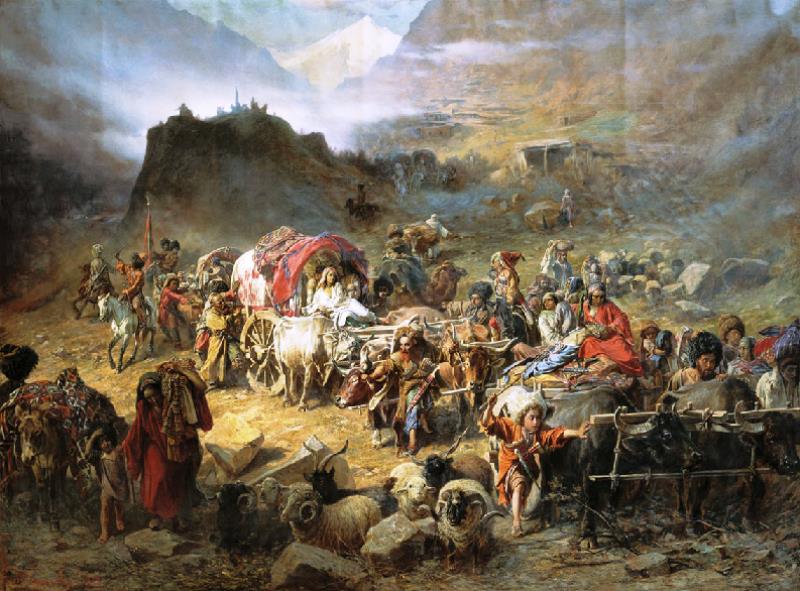
But the Russians weren’t simply negligent. During the war, they killed civilians and razed whole villages. Aside from killing 200,000 in the war, Russia resettled returning Circassians far from their homeland without so much as a finger in the right direction. The resulting famine and disease killed a staggering one million people.
The final irony? A good chunk of the Circassians that stayed in Turkey led the Young Turks, the same Young Turks that would lead the cleansing of Christians during World War 1. It goes to show that just as the crimes of a father cannot be passed down to his son, neither can his virtues.
Operation Searchlight Leads To 1.5 Million Dead In Bangladesh
When West Pakistan attempted to stomp out nationalistic sentiment in its Eastern counterpart, things did not go nearly as well as they’d hoped. Planning to be done in a month, West Pakistan launched Operation Searchlight in 1971 as a nation-wide occupation and silencing of political and military opponents in East Pakistan—now Bangladesh.
By the time the occupation was rolling into its third month, the Western Pakistani military had decided to take more extreme measures. The plan, according to a top general speaking to his soldiers, was to “Kill 3 million of them and the rest will eat out of our hands.” Instead, what they got was impassioned, continued resistance, as the occupation only served to embolden the independence movement.
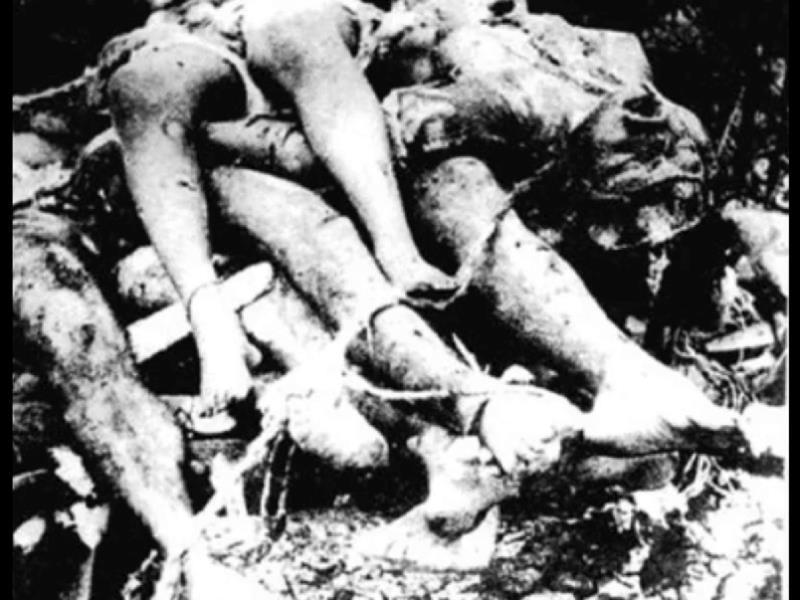
Source: Source: Bangladesh Defence
Men and teenage boys were disproportionately targeted for slaughter, ironically because the Western Pakistani soldiers considered themselves too decent to kill women. Instead, they raped upwards of 200,000 female Bengali, with girls as young as thirteen reported forced into sex slavery.
In Dacca, male conscientious objectors were roped together in half-dozen groups and made to wade out into a river as riflemen picked them off from the pier. Hindus were particularly targeted as though their specific eradication would dilute what was seen as heavy Indian influence in the country.
Though Pakistan still to this day plays down the death toll to a paltry 26 thousand, most historians agree it was closer to 1.5 million. Bangladesh won its fight for independence later that year when India and the USSR came to their aid (guess who was funding West Pakistan). Like the Armenians and Circassians, they are still fighting for acknowledgement and reconciliation for a genocide unrecognized by the perpetrator.
Then, learn about the brutality of Belgium’s Leopold II and his genocide in Africa.
